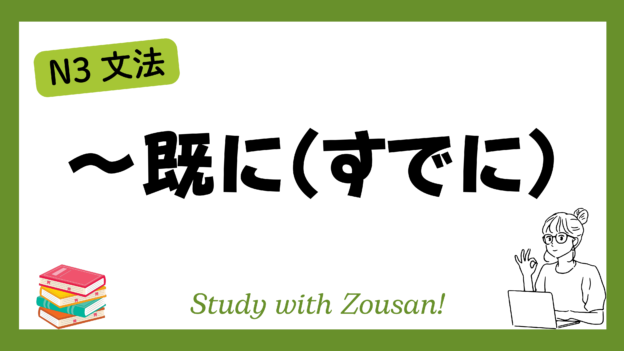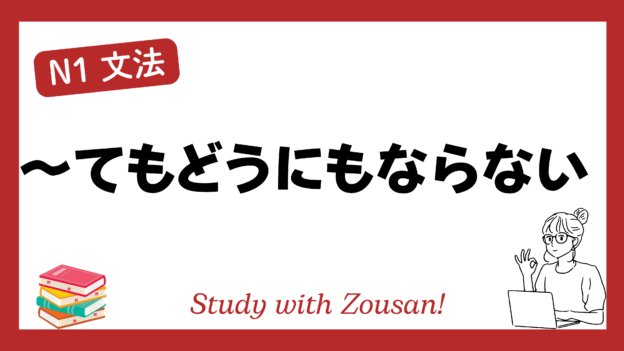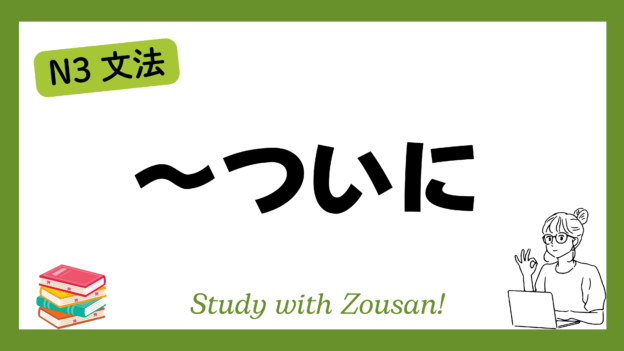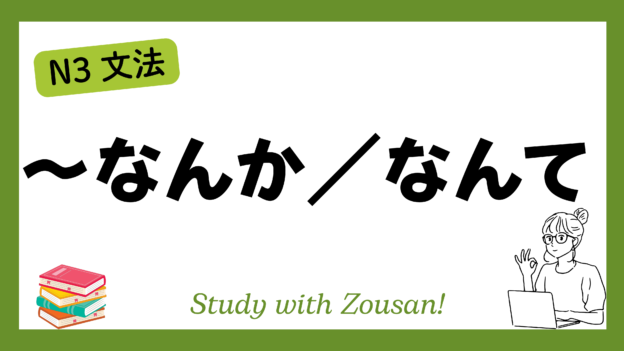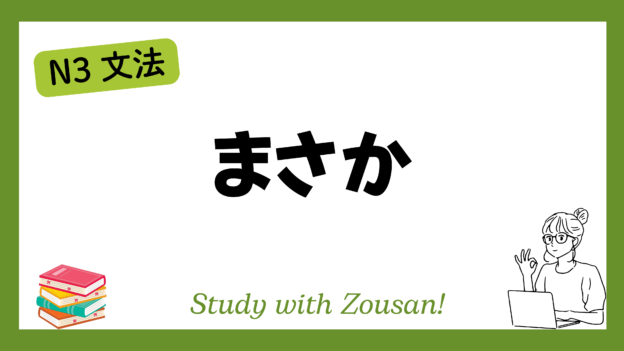N3文法:~既に(すでに)
Meaning: “Already”, “By now”, “Previously”
“既に” (すでに) is used to express that something has already occurred or is already in a certain state. It indicates that the action or event has been completed or reached a point in the past or by now. It can be translated as “already”, “by now”, or “previously”.
※Note: This expression is used in both formal and informal contexts to indicate that something has happened before the current time.
Structure:
| すでに + clause |
Example:
-
-
-
🌟 彼は既に家を出ていた。
(かれ は すでに いえ を でていた。)
He had already left the house. -
🌟 既にその仕事は終わっています。
(すでに その しごと は おわっています。)
The work is already finished. -
🌟 そのニュースは既に知っていた。
(その ニュース は すでに しっていた。)
I already knew about that news. -
🌟 既に彼女は大学を卒業している。
(すでに かのじょ は だいがく を そつぎょう している。)
She has already graduated from university. -
🌟 既に会議は始まっていた。
(すでに かいぎ は はじまっていた。)
The meeting had already started. -
🌟 列車は既に出発してしまった。
(れっしゃ は すでに しゅっぱつ してしまった。)
The train has already departed. -
🌟 既に多くの人がそのイベントに参加しています。
(すでに おおく の ひと が その イベント に さんか しています。)
Many people have already joined the event. -
🌟 既に昼食は食べましたか?
(すでに ちゅうしょく は たべました か?)
Have you already had lunch? -
🌟 彼らは既に目的地に到着している。
(かれら は すでに もくてきち に とうちゃく している。)
They have already arrived at the destination. -
🌟 既に計画が変更されたようです。
(すでに けいかく が へんこう された よう です。)
It seems the plan has already been changed.
-
-



